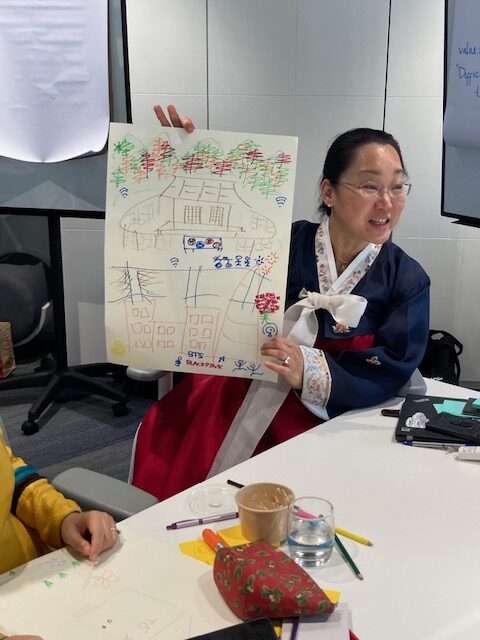Explore the nuances of cross-cultural leadership in Thailand with strategies tailored for success.

Cross-Cultural Leadership in Thailand: Strategies for Success
In an increasingly globalized world, the ability to lead across cultures has become a vital skill for leaders. Thailand, with its rich cultural heritage and unique social norms, presents both challenges and opportunities for cross-cultural leadership. Understanding the nuances of Thai culture is essential for anyone looking to succeed in leadership roles within the country. This article explores effective strategies for cross-cultural leadership in Thailand, providing insights that can help leaders navigate this vibrant landscape.
Understanding Thai Culture
Before delving into leadership strategies, it is crucial to understand the cultural context in which one operates. Thailand’s culture is deeply rooted in traditions, values, and social hierarchies that influence how people interact and work together. The interplay of Buddhism, which is the predominant religion, and local customs shapes the Thai worldview, emphasizing compassion, mindfulness, and respect for others. This spiritual foundation often manifests in everyday interactions, where politeness and a calm demeanour are highly valued.
The Importance of Hierarchy
Thai society is characterized by a strong sense of hierarchy, which is reflected in both personal and professional relationships. Respect for authority and seniority is paramount, and leaders are often expected to embody these values. This hierarchical structure means that decisions may take longer, as input from various levels is considered before reaching a conclusion. In many cases, the decision-making process is not just about arriving at a solution but also about maintaining harmony and ensuring that all voices are heard, even if it takes additional time.
Leaders must navigate this hierarchy with sensitivity, recognizing the importance of showing respect to those in senior positions while also fostering an environment where junior team members feel valued and heard. Balancing these dynamics is key to effective leadership in Thailand. Additionally, non-verbal communication plays a significant role in these interactions; subtle cues, such as body language and facial expressions, can convey respect or disagreement without a single word being spoken. Understanding these nuances can greatly enhance a leader’s ability to connect with their team.
Collectivism vs. Individualism
Thai culture leans heavily towards collectivism, where group harmony and consensus are prioritized over individual achievements. This cultural trait can influence team dynamics, as decisions are often made collectively rather than by a single leader. Understanding this aspect is crucial for leaders who wish to foster collaboration and unity within their teams. The concept of “saving face” is also integral to this collectivist mindset; maintaining dignity and respect for oneself and others is essential, and leaders must be adept at navigating situations where conflicts may arise without causing embarrassment or discomfort.
Encouraging open dialogue and group discussions can help leaders tap into the collective mindset of their teams. By valuing group input and recognizing the contributions of all members, leaders can strengthen team cohesion and morale. Furthermore, incorporating traditional Thai practices, such as group ceremonies or team-building activities rooted in local customs, can enhance relationships and foster a deeper sense of belonging among team members. These practices not only reinforce the importance of community but also create an atmosphere where everyone feels invested in the team’s success, ultimately leading to more effective collaboration and innovation.
Effective Communication Strategies
Communication in Thailand can be subtle and indirect, which can pose challenges for leaders from more direct communication cultures. Understanding the nuances of Thai communication styles is essential for fostering effective interactions.
The Role of Non-Verbal Communication
In Thailand, non-verbal cues often carry significant weight. Body language, facial expressions, and tone of voice can convey messages that words alone may not express. Leaders should pay close attention to these non-verbal signals, as they can provide valuable insights into team members’ feelings and attitudes.
Additionally, maintaining a calm and composed demeanour is crucial in Thai culture. Leaders who exhibit patience and understanding are more likely to gain the trust and respect of their teams. This approach not only facilitates better communication but also fosters a positive work environment.
Active Listening
Active listening is a vital skill for leaders in any cultural context, but it takes on added significance in Thailand. By demonstrating genuine interest in team members’ perspectives, leaders can build rapport and create a sense of belonging within the team. This practice encourages open communication and helps to bridge cultural differences.
Leaders should make a conscious effort to listen attentively, ask clarifying questions, and validate team members’ contributions. This approach not only enhances understanding but also empowers individuals to share their ideas and concerns without fear of judgment.
Building Trust and Relationships
Trust is a cornerstone of effective leadership, particularly in a collectivist culture like Thailand. Building strong relationships with team members is essential for fostering collaboration and achieving organizational goals.
Investing Time in Relationship Building
In Thailand, relationships often take precedence over transactional interactions. Leaders should prioritize spending time getting to know their team members, both professionally and personally. This investment in relationship building can lead to increased loyalty and commitment from team members.
Participating in social activities, such as team lunches or cultural events, can help leaders connect with their teams on a deeper level. By showing genuine interest in their lives outside of work, leaders can create a supportive and cohesive team environment.
Demonstrating Integrity and Consistency
Integrity is highly valued in Thai culture, and leaders who demonstrate ethical behaviour and consistency in their actions are more likely to gain the trust of their teams. This means being transparent in decision-making processes and following through on commitments.
Leaders should strive to create an environment where honesty and accountability are prioritized. By modelling these behaviours, leaders can instil a sense of trust and reliability within their teams, leading to improved collaboration and performance.
Adapting Leadership Styles
Different cultures often require different leadership styles, and Thailand is no exception. Leaders must be willing to adapt their approach to align with the cultural expectations and preferences of their teams.
Embracing Servant Leadership
Servant leadership, which emphasizes the leader’s role as a supporter and enabler of their team, resonates well with Thai cultural values. This approach aligns with the collectivist nature of Thai society, where leaders are expected to prioritize the needs of their team members.
By adopting a servant leadership style, leaders can create an environment where team members feel valued and empowered. This approach fosters collaboration and encourages individuals to contribute their unique skills and perspectives to the team.
Flexibility and Adaptability
In a rapidly changing business landscape, flexibility and adaptability are essential traits for leaders. In Thailand, where traditions and modern practices coexist, leaders must navigate these complexities with agility.
Being open to new ideas and willing to adjust strategies based on team feedback can enhance a leader’s effectiveness. This adaptability not only demonstrates respect for the team’s input but also fosters a culture of innovation and continuous improvement.
Navigating Conflict in a Cross-Cultural Context
Conflict is an inevitable part of any workplace, and how leaders handle conflict can significantly impact team dynamics. In Thailand, where maintaining harmony is essential, leaders must approach conflict resolution with care and sensitivity.
Addressing Issues Privately
In Thai culture, public confrontation is often viewed as disrespectful. Leaders should strive to address conflicts privately, allowing team members to express their concerns without fear of embarrassment. This approach not only preserves relationships but also encourages open dialogue.
Leaders can facilitate private discussions by creating a safe space for team members to voice their opinions. By actively listening and validating their feelings, leaders can work towards finding mutually agreeable solutions.
Finding Common Ground
When conflicts arise, it is essential for leaders to seek common ground among team members. This involves understanding the perspectives of all parties involved and identifying shared goals or values.
By focusing on common objectives, leaders can help team members work collaboratively towards resolution. This approach not only resolves the immediate conflict but also strengthens relationships and fosters a sense of unity within the team.
Leveraging Cultural Diversity
Thailand is home to a diverse population, with various ethnicities and cultural backgrounds contributing to the country’s rich tapestry. Leaders can harness this diversity to drive innovation and creativity within their teams.
Encouraging Diverse Perspectives
Leaders should actively encourage team members to share their unique perspectives and experiences. By creating an inclusive environment where diverse voices are heard, leaders can tap into a wealth of ideas and insights that can enhance problem-solving and decision-making.
Facilitating brainstorming sessions or workshops that celebrate cultural diversity can foster collaboration and creativity. Leaders should emphasize the value of different viewpoints and encourage team members to learn from one another.
Promoting Cultural Awareness
To effectively lead in a cross-cultural context, leaders must promote cultural awareness within their teams. This involves educating team members about different cultural practices and values, fostering mutual respect and understanding.
Leaders can organize cultural exchange programs or workshops that highlight the significance of various cultural traditions. By promoting cultural awareness, leaders can create a more cohesive and harmonious team environment.
Conclusion: The Path to Successful Cross-Cultural Leadership in Thailand
Cross-cultural leadership in Thailand requires a deep understanding of the cultural context, effective communication skills, and a commitment to building strong relationships. By embracing the unique aspects of Thai culture and adapting leadership styles accordingly, leaders can foster collaboration, innovation, and success within their teams.
Ultimately, successful cross-cultural leadership is about recognizing and valuing the contributions of every team member while navigating the complexities of cultural differences. By implementing the strategies outlined in this article, leaders can pave the way for a thriving and harmonious work environment in Thailand.
As the world continues to evolve, the ability to lead across cultures will remain a vital skill. In Thailand, where tradition and modernity coexist, leaders have the opportunity to make a lasting impact by embracing cultural diversity and fostering an inclusive workplace. The journey may be challenging, but the rewards of successful cross-cultural leadership are well worth the effort.
Take Your Leadership to the Next Level with Olive Trainers
Embrace the full potential of cross-cultural leadership in Thailand with Olive Trainers. Our specialized training solutions are crafted to align with the cultural intricacies and leadership challenges you’ve just read about. From enhancing team well-being to developing global leadership competencies, we offer a range of programs tailored to your organization’s needs. Contact Us Today to discover how we can support your journey towards successful cross-cultural leadership and drive your corporate team’s growth.


